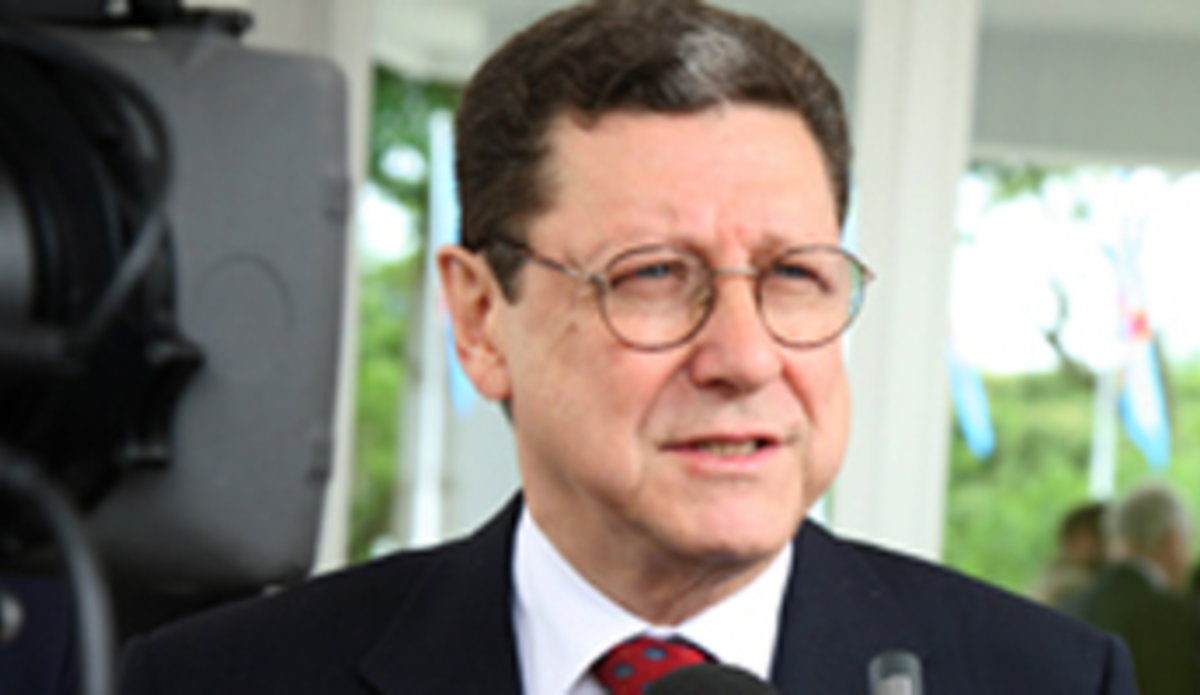Alan Doss - "Together we have come a long way"
Kinshasa, 23 June 2010 - The Special Representative of the Secretary-General of the United Nations in the DRC, Alan Doss, whose term as head of the UN Mission expires at the end of this month, met and interacted with the Congolese press for the last time today. While this was no stock taking time, Mr. Doss nevertheless spoke of the gains achieved during the two years and a half, he has spent in the DRC, as well as the challenges ahead for MONUSCO which takes over from 1st July 2010.
Opening statement.
Ladies and Gentlemen of the Press
Listeners of Radio Okapi, Good Morning!
As you know, I'm preparing to leave the DRC after completing my term at the helm of MONUC. But before I leave, I wanted to have one last exchange with you.
Thanks to the confidence placed in me by the Secretary-General, I have had the privilege of participating and assisting in the quest for lasting peace, a goal to which the Congolese Government and its people have for several years been committed. Of course, this peace is not yet complete, but much of the country enjoys a measure of peace today. Hundreds of thousands of displaced people have been able to return to their homes. Violence has been significantly reduced in several areas which are now more accessible to humanitarian organizations. Thousands of combatants have been demobilized, including foreign combatants especially from the FDLR; 2,300 of which have been repatriated to Rwanda. We have launched the STAREC program to support stabilization efforts in eastern DRC. Hundreds of child soldiers have been demobilized and many have rejoined their families.
Together we have come a long way. The international community has played an important role during and throughout this whole process, but this has only been made possible, thanks to the commitment of the Congolese authorities and people. I especially welcome the courageous decision of President Kabila to promote closeness and dialogue with neighboring countries, which constitutes an essential step towards restoring peace to the Great Lakes region.
That said, we recognize that the violence against civilians, particularly in the Kivus and some areas of Oriental Province, remains a concern. This is why the Security Council in its resolution 1925 insisted that MONUSCO should continue to give priority to the protection of civilians, especially women, who are in danger.
Resolution 1925 however explicitly recognizes the progress that has been made over the last ten years and this must be reflected in a qualitative but also strategic change in UN support for this country. That is what is expressed through the stabilization and peace consolidation tasks assigned to MONUSCO. These objectives are reflected by the extension and strengthening of the State, respect for the rule of law, reform of the security sector, and support for economic and social development.
Obviously, the death of Floribert Chebeya has shocked us all deeply and we hope that the investigation will be completed as quickly as possible and in full transparency. This is important for the cooperation between the DRC and the entire international community.
I know that many of you expect me to take stock of my stay. I leave that to you - journalists and to historians. Certainly there have been ups and downs but this is inherent in any human endeavour.
I am leaving the DRC with a feeling of satisfaction that we have accomplished much together, but also knowing that there still remains a lot to do. For having travelled extensively around this country and listened to Congolese people from all sides, I can say, without pretension, that I understand their aspirations and choices. They seek peace, stability and the means to earn a living and take care of their families.
I reiterate my thanks to the Congolese Government and people, to colleagues of the United Nations, to friends of the international community, and to civil society for all they have done in facilitating the accomplishment of my mission.
Finally, let me say to our friends in the media that I recognize the difficulties that you face. Despite that, I encourage you to continue your efforts, because freedom of expression is an indispensable pillar of a democratic and free society. But I ask you to use this freedom with responsibility and integrity.
In a few days, the Congolese people will celebrate the 50th anniversary of independence. Let me therefore conclude my remarks by wishing you a happy feast and a happy anniversary. I am convinced that the great Congo with its position at the crossroad of Africa has a global destiny, one which will be achieved with determination, hard work, discipline and, above all, faith.
May the coming 50 years for this country be a period of peace, development and prosperity.
Thank you and good luck.
 UN
UN United Nations Peacekeeping
United Nations Peacekeeping





